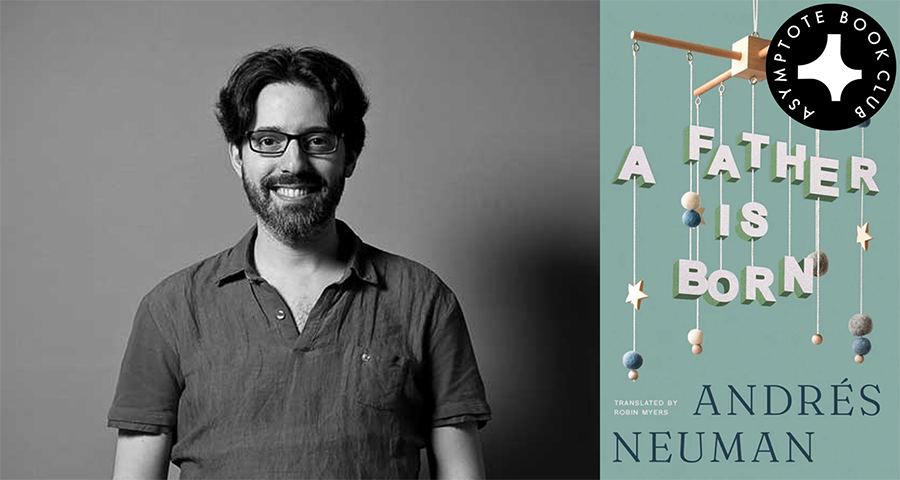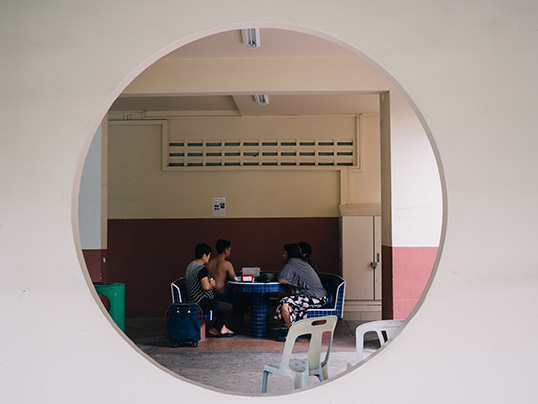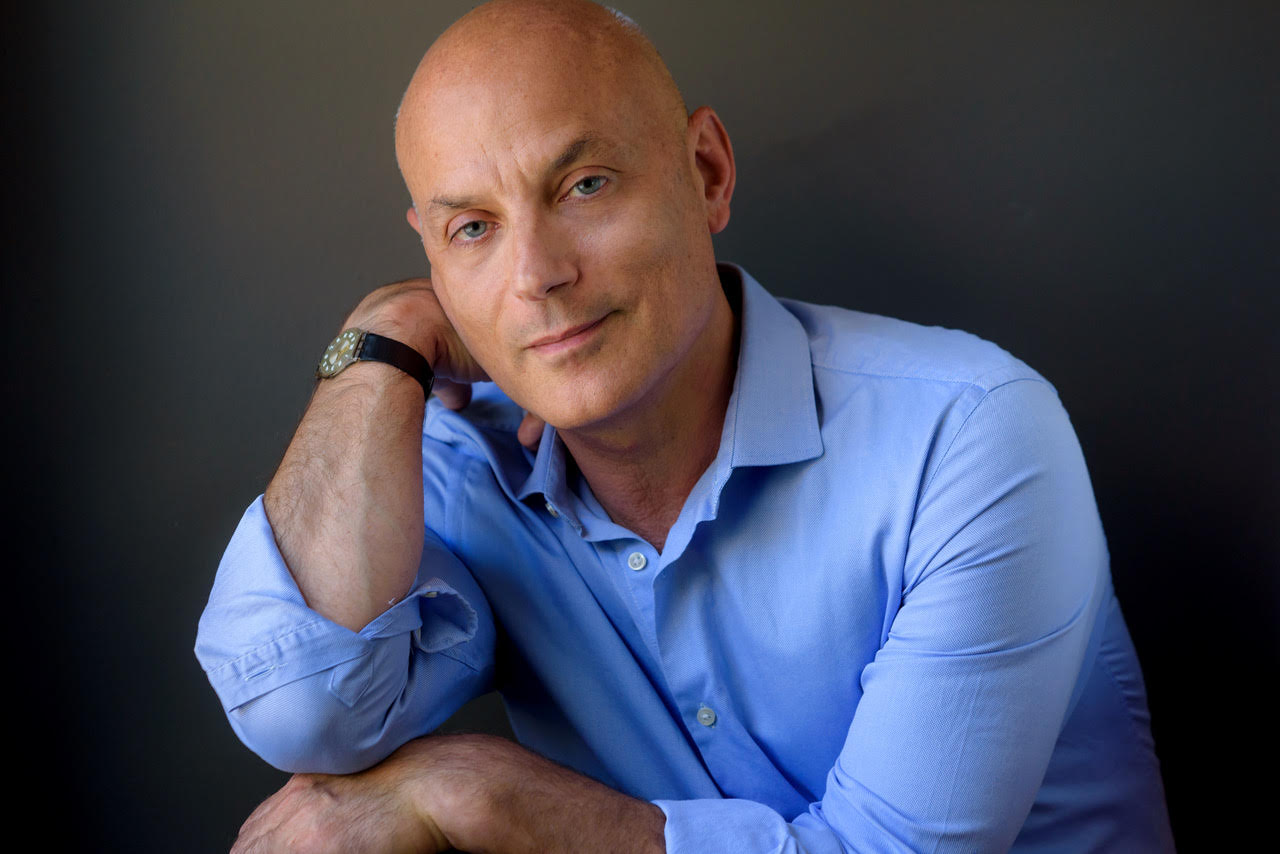Andrés Neuman’s A Father Is Born, translated with delicate precision by Robin Myers, is a quietly powerful meditation on fatherhood, language, and identity. This slender volume delicately weaves poetic vignettes and prose reflections, capturing the intimate transformation of becoming a parent, and Myers, having worked on the translation during her own pregnancy, brings an empathetic awareness to the text’s subtle rhythms and linguistic surprises. The dialogue also touches on linguistic shifts, cultural inheritance, and the vibrant literary scenes of Buenos Aires and Mexico City—culminating in a tender exploration of voice, translation, and the evolving nature of home.
The Asymptote Book Club aspires to bring the best in translated fiction every month to readers around the world. You can sign up to receive next month’s selection on our website for as little as USD20 per book; once you’re a member, join our Facebook group for exclusive book club discussions and receive invitations to our members-only Zoom interviews with the author or the translator of each title.
Maddy Robinson (MR): The book is such a quietly beautiful collection of aphorisms, blending poetry and prose to explore the experience of fatherhood. When you’re tasked with finding a narrative voice so closely aligned with the author’s own, how does that compare to translating fiction?
Robin Myers (RM): That’s a wonderful question. Having worked with both life writing and fiction, I honestly don’t feel there’s a huge difference. What matters most is paying close attention to what the language is doing on the page—trying to understand and honor the author’s choices.
For this particular book, it falls along a spectrum of Andrés’s styles. I’ve had the honor of translating his work before—both his early novel Bariloche, which he wrote at a very young age, and also a book of his poetry. What I find remarkable about A Father Is Born is how it combines his novelistic sensibility with the precision of poetry; there’s something about the spareness and distilled quality of this book that I also find in his fiction. The voice emerges from those deliberate decisions.
The text is elliptical, presenting quick vignette-like scenes, from the interior world of preparing for fatherhood to welcoming the child, and the intensity of early parenthood. It also beautifully captures the child’s formation and psyche. It was important for me to attend to the imagery and the surprising, somewhat unconventional sentence structures Andrés uses—which are rarely predictable. Translating this invited me to stay alert to that strangeness in his sentences.
The book is deeply earnest but also includes humor, sometimes self-deprecating. I also tried to retain those moments with their original oddness in English.
MR: As a reader, one of the remarkable things about books like this is how we experience them differently depending on where we are in life. I think the same is true of translation: a book arrives at a time in your life when you least expect it. I happen to know that this book found you at a very fitting moment in your life. Could you talk about that a bit? READ MORE…






